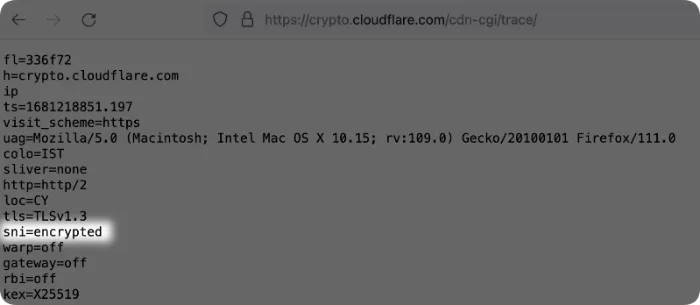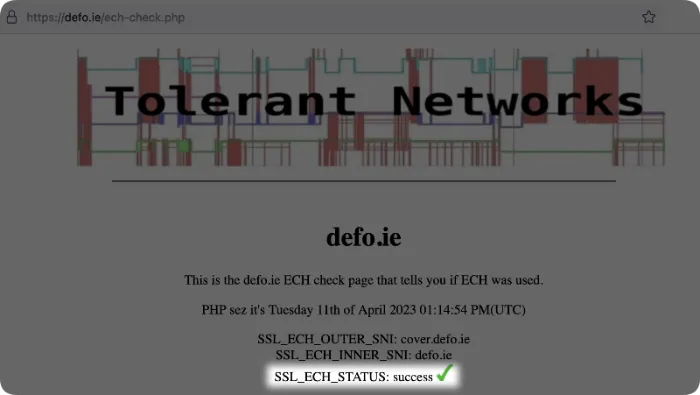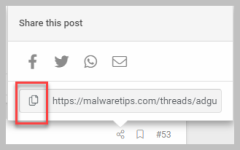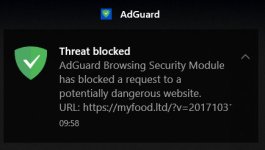You mean if I don't use DNS function in the Adguard for Windows?Yes. If you don't use dns function you can turn it off.
New Update AdGuard for Windows - Stable Updates Thread
- Thread starter Petrovic
- Start date
You are using an out of date browser. It may not display this or other websites correctly.
You should upgrade or use an alternative browser.
You should upgrade or use an alternative browser.
Yes.You mean if I don't use DNS function in the Adguard for Windows?
I noticed that browsing slows down considerably when some features are activated or more lists are added from what's offered. Thinks speeded up when I reset settings to default. To minimize the cookie notification popups in some sites, I also had to activate Fanboy's Annoyances.
@monkeylove Thanks for the update. Is the Fanboy's Annoyances, the only item in the category of the Annoyances, that you selected and added?
For now, yes, and it was able to stop cookie popups in at least one site. I will visit other sites and see if a second list will work, then report to this thread. For now, I want to minimize adding more lists or even activating features.
Edit: I was able to block video popups in a second site using the Web Annoyances ultralist plus cookie notifications in another site, so I'll try that and deactivate Fanboy Annoyances first.
Edit: I was able to block video popups in a second site using the Web Annoyances ultralist plus cookie notifications in another site, so I'll try that and deactivate Fanboy Annoyances first.
L
Local Host
Ever since Adguard changed the person responsible for the Annoyances filter, it has been useless at best.I noticed that browsing slows down considerably when some features are activated or more lists are added from what's offered. Thinks speeded up when I reset settings to default. To minimize the cookie notification popups in some sites, I also had to activate Fanboy's Annoyances.
I got no problems with cookiestuff or annoyances on most sites I visit (using the adguard Annoyances filter not adding fanboys).
If you trust them you can think about enabling "Filter HTTPS"
But the decison is up to you.
If you trust them you can think about enabling "Filter HTTPS"
Last edited:
Filters i use :
Adguards own filters
- adguard base filter
- adguard url tracking filter
- adguard tracking protection filter
- adguard social media filter
- adguard annoyances filter
Other built in filters i have enabled:
- no coin filterlist
- ablock for finland
Imported filters:
- 1hosts lite
Adguards own filters
- adguard base filter
- adguard url tracking filter
- adguard tracking protection filter
- adguard social media filter
- adguard annoyances filter
Other built in filters i have enabled:
- no coin filterlist
- ablock for finland
Imported filters:
- 1hosts lite
Gandalf_The_Grey
Level 85
Verified
Honorary Member
Top Poster
Content Creator
Well-known
Forum Veteran
AdGuard for Windows version 7.8 from December 16, 2021

 adguard.com
adguard.com
We once again reviewed GitHub repo and realized that we had been working for almost six months on version 7.7. And less than two months on version 7.8. Yes, there were fewer tasks in this version, but we did a good job on improving everything: Browsing Security, network drivers, CoreLibs and DNSLibs, other minor features, and – hopefully – your user experience.
[Enhancement] Browsing Security
Browsing Security is a module that blocks requests to malicious and phishing websites. You might have seen a nice looking banner caringly stating "AdGuard has blocked access to this page": that's what Browsing Security does. Now it's working a way better: requests for information about malicious domains are not sent to a server, but to a periodically updated database stored locally on your computer. This is faster and safer.
[Enhancement] WFP and TDI network drivers
We've also updated and enhanced our network drivers for Windows – WFP and TDI. Both have been helpful, among other things, to improve compatibility with other applications.
Other good stuff
And of course, there is no release without updating CoreLibs, our main filtering engine, and DNSLibs. Meet their new versions: more flexible, more powerful. As always: minor bugs have been fixed. As always: perfection has no limits.
Hope that your holidays will be safer with AdGuard.

Versions history | AdGuard
Download and learn about AdGuard versions — latest version, release date, version history, patches, features, etc.
Hi, isn't it better to also add easy privacy?Filters i use :
Adguards own filters
- adguard base filter
- adguard url tracking filter
- adguard tracking protection filter
- adguard social media filter
- adguard annoyances filter
Other built in filters i have enabled:
- no coin filterlist
- ablock for finland
Imported filters:
- 1hosts lite
Im using adguards tracking + url tracking + fanboy enchanted tracking list nowadaysHi, isn't it better to also add easy privacy?
+ 1host pro
- Aug 17, 2014
- 12,731
- 123,854
- 8,399
AdGuard for Windows 7.12
Release date: January 30, 2023Two most important changes in this release: protection is turned on and off faster and DNS protection is now enabled by default. We’ve also fixed some bugs, updated CoreLibs and DnsLibs, and improved the WFP and TDI network drivers.
Protection is turned on and off faster
We’ve significantly reworked everything “under the hood”, thus improving the app performance: protection is now enabled, disabled, and reloaded much faster. Previously, because of the long startup and restart of the protection, the implementation of rules and other protection features could be delayed or could even cause a web resource to “leak” past the protection. Some connections could remain unfiltered. And after all, it was very annoying for the user to watch the long startup of the app. Starting with this version, it won’t happen again.DNS protection is enabled by default
Now, if you have just installed AdGuard, DNS protection is automatically turned on. By default, the ISP's DNS server is used, and for security, AdGuard DNS filter is enabled: ads, trackers, and requests for malicious domains will be automatically blocked. To increase security, you can always select a DNS server from the list or add a custom one (for example, a private AdGuard DNS server) via Settings → DNS protection. DNS filtering allows AdGuard to catch ads and trackers even before the browser tries to connect to the ad server. So this update has also helped us improve the speed and quality of ad blocking. On top of that, DNS protection makes blocking “hidden” trackers more effective.Changelog
Enhancement
- DNS protection is enabled by default, the DNS server of the ISP is used #4534
Added
- The option to filter traffic at system start-up without launching the app #4454
- PIX-LINK router/repeater domains to fallback domains #170
- Support for Catsxp Browser #4326
- An option to delete installation logs when reinstalling the app #4493
- Dark theme for the installer app 3048
Fixed
- AdGuard doesn’t start after rebooting #4502
- AdGuard freezes after filter update #4456
- If “Blocked” is selected in the filtering log, all requests are shown #4525
- The app doesn't update automatically in the background in Windows 7 #4494
- Unable to install userscripts that include @ in the link #4397
- Metadata updating error for HaGeZi DynDNS Blocklist #4475
- The main window opens at system startup despite checkbox is unchecked #4546
- Filtering and userscripts do not work with Norton 360 installed #1712
- Compatibility issue for the google-ima3 redirect #272
- Compatibility issue between prevent-addEventListener and userscripts #271
- Issue with isEmptyObject() #268
- Error when updating/reinstalling the AdGuard Popup Blocker userscript #4574
Updated

Versions history | AdGuard
Download and learn about AdGuard versions — latest version, release date, version history, patches, features, etc.
Release 7.12 · AdguardTeam/AdguardForWindows
Disclaimer AdGuard for Windows is not an open-source project. We use Github as an open bug tracker for users to see what developers are working on. Two most important changes in this release: prot...
- Aug 17, 2014
- 12,731
- 123,854
- 8,399
Before a big release, it's a good idea to double-check everything and get rid of even the smallest problems. That's why today we're launching a release candidate of AdGuard v7.13 for Windows.
We’ve updated CoreLibs and DnsLibs, fixed a few bugs, including the compatibility issue with NordVPN, and improved the Browser Assistant.
Changelog
Fixes
- NordVPN interferes with the work of AdGuard if AdGuard’s DNS module is enabled #4673
- Upon exiting AdGuard, the Assistant indicates that AdGuard is not installed or misconfigured #4663
- Incorrect translation in the updater window #4640
- Disabling the Enable traffic filtering option does not stop filtering #4657
- The path modifier does not work on yandex.ru/images #1738
- The $jsonprune modifier can’t handle jsonp #1717
- Filtering does not work on websites with dot at the end #1741
- In some cases filtering doesn’t work on Google-related websites (e.g. youtube.com) #4480
Versions
AdGuard for Windows 7.13 RC
Before a big release, it's a good idea to double-check everything and get rid of even the smallest problems. That's why today we're launching a release candidate of AdGuard v7.13 for Windows. We’ve updated CoreLibs and DnsLibs, fixed a few bugs, including the compatibility issue with NordVPN...
forum.adguard.com
Release 7.13 RC · AdguardTeam/AdguardForWindows
Before a big release, it's a good idea to double-check everything and get rid of even the smallest problems. That's why today we're launching a release candidate of AdGuard v7.13 for Windows. We’ve...
Gandalf_The_Grey
Level 85
Verified
Honorary Member
Top Poster
Content Creator
Well-known
Forum Veteran
AdGuard 7.13 released:

 adguard.com
adguard.com

 github.com
github.com
As spring arrives, AdGuard for Windows unveils its latest release, complete with numerous new features and improvements.
Experimental Encrypted ClientHello support
Notably, the addition of experimental support for Encrypted ClientHello (ECH) is worth mentioning. This new technology fully encrypts HTTPS connections, concealing server names you are connecting to from ISPs and ensuring complete privacy.
So that you can benefit from it, we’ve added the Use Encrypted ClientHello feature to the Advanced settings section and enabled DNS protection by default for all users.
New Advanced settings
We’ve also added 16 more features to the Advanced settings section. A detailed description of each feature can be found in our Knowledge base.
All new advanced features can be divided into six groups:
Note that before v7.12 the AdGuard's service started in filtering mode by default (even if the Launch AdGuard at system start-up was disabled). If you were satisfied with the old behavior, enable this option.
- Anti DPI options allow to modify packets at a low level during filtering to prevent tracking via deep packet inspection
- Adjust size of fragmentation of initial TLS packet
- Add an extra space to the plain HTTP request
- Plain HTTP request fragment size
- Keepalive settings allow to configure settings to work with keepalive connections
- Enable TCP keepalive
- TCP keepalive interval
- TCP keepalive timeout
- Filtering exclusion settings allow to exclude both Wi-Fi networks and particular subnets (specified in the CIDR notation) from DNS filtering
- Exclude specified IP ranges from filtering
- IP ranges excluded from filtering
- Exclude specified Wi-Fi network names (SSID) from DNS filtering
- DNS-related options allow to fine-tune DNS settings
- Use fallback DNS upstreams
- Use HTTP/3 for DNS-over-HTTPS
- Query DNS upstreams in parallel
- Always respond to failed DNS queries
- Certificate security options allow to check certificates of websites and web services
- Check websites' certificate transparency
- Enable asynchronous OCSP SSL/TLS certificate revocation checks
- Enable filtering at system start-up. Now by default, AdGuard for Windows does not filter traffic after OS startup if the option Launch AdGuard at system start-up is disabled. If you want filtering to be performed even if AdGuard is not launched, you should enable this option.
What else? Aside from the regular CoreLibs and DnsLibs updates, we’ve updated WFP and TDI drivers and ExtendedCSS. We’ve also allowed to disable the Filter localhost advanced feature. But be aware that disabling this feature will prevent AdGuard Ad Blocker and AdGuard VPN from working simultaneously.

Versions history | AdGuard
Download and learn about AdGuard versions — latest version, release date, version history, patches, features, etc.
Release 7.13 · AdguardTeam/AdguardForWindows
Disclaimer AdGuard for Windows is not an open-source project. We use Github as an open bug tracker for users to see what developers are working on. As spring arrives, AdGuard for Windows unveils i...
- Aug 17, 2014
- 12,731
- 123,854
- 8,399
For Encrypted ClientHello technology to work, it must be supported on both client and server sides. Today, ECH support is implemented in a limited number of applications. Chrome and Firefox, for example, are in the process of adding it. Here we have no choice but to wait. But thanks to AdGuard, ECH support will automatically work in all apps and browsers on your device.
To check whether ECH is working, you can:
- Go to https://crypto.cloudflare.com/cdn-cgi/trace/ and see if it says sni=encrypted.

- Go to https://defo.ie/ech-check.php and check if it says SSL_ECH_STATUS: success.

As the Use Encrypted ClientHello feature is experimental, it may also lower your browsing speed a bit. But, we're currently working on solving this issue.
AdGuard for Windows 7.13
As spring arrives, AdGuard for Windows unveils its latest release, complete with numerous new features and improvements. Experimental Encrypted ClientHello support Notably, the addition of experimental support for Encrypted ClientHello (ECH) is worth mentioning. This new technology fully...
forum.adguard.com
AdGuard for WIndows is painfully slow when opening multiple browser tabs compared to AdGuard browser extension. I used to use it all the time but switched several months ago. Updated to latest v7.13 but disabled it as speed issue was so noticeable.
Version 7.13 resolved a situation that had been dragging on, the Adguard service took too long to start and made the program unusable. A reboot was required to fix it.
You may also like...
-
-
New Update AdGuard Browser Extension finally migrates to MV3: release now available
- Started by silversurfer
- Replies: 0
-
New Update Windows 11 Patch Tuesday January 2026 (KB5074109, KB5073455)
- Started by silversurfer
- Replies: 18
-
-
New Update KB5058499 optional update finally makes Windows 11 24H2 stable for gaming
- Started by Gandalf_The_Grey
- Replies: 8


